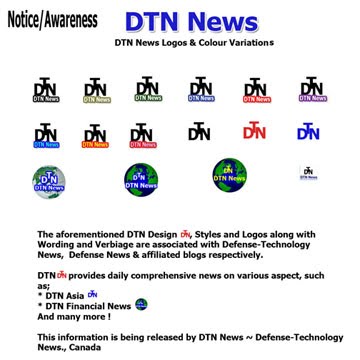 Source: DTN News - - This article compiled by Roger Smith from reliable sources By Keith B. Richburg Washington Post Staff Writer Monday, January 17, 2011
Source: DTN News - - This article compiled by Roger Smith from reliable sources By Keith B. Richburg Washington Post Staff Writer Monday, January 17, 2011
"There is no denying that there are some differences and sensitive issues between us," Hu said in written answers to questions from The Washington Post and the Wall Street Journal. "We both stand to gain from a sound China-U.S. relationship, and lose from confrontation.''
To enhance what he called "practical cooperation" on a wide range of issues, Hu urged an increase in dialogues and exchanges and more "mutual trust." He said, "We should abandon the zero-sum Cold War mentality," and, in what seemed like an implicit rejection of U.S. criticisms of China's internal affairs, said the two should "respect each other's choice of development path."
Hu took aim at the international currency system, now dominated by the dollar, calling it a "product of the past." China has moved to make its currency, the renminbi, convertible on international markets, and Hu pointed to Chinese efforts to boost its use in trade and investment. But he cautioned against any suggestion that the renminbi, also called the yuan, might soon become a new reserve currency. "It takes a long time for a country's currency to be widely accepted in the world," Hu said.
Hu, the secretary general of the Chinese Communist Party since 2002 and China's president since 2003, rarely speaks in interviews or gives news conferences. His last extensive comments to American media outlets came in 2008, in a joint meeting around the time of the Beijing Olympics. His last comments to Western media were in written format last November to a French and a Portuguese newspaper.
Under the ground rules, Hu decided which questions to answer from lists submitted separately by the Post and the Journal.
Hu made an official visit to the White House in 2006, but President George W. Bush denied him the privilege of a full state visit, offering only a lunch. He was in Washington in April for President Obama's nuclear security summit.
The Obama administration plans to use the summit to refocus attention on China's record on human rights and political freedoms, after spending much of the past two years seeking to engage the Chinese leadership on a broad array of global issues including climate change, helping stabilize the global economy, and dealing with the nuclear ambitions of Iran and North Korea.
The human rights issue - which many administration critics believe was underplayed over the past two years - gained a new spotlight in October, when the Nobel Committee in Oslo awarded the 2010 Nobel Peace Prize to a jailed Chinese dissident, Liu Xiaobo. Also last fall, Chinese Premier Wen Jiabao linked political reform to continued economic progress in a speech in Shenzhen, at the United Nations in September and later in an interview with Time magazine and CNN.
Hu, in his written answers Sunday, said China would continue to develop "socialist democracy." His comment on the topic seemed to suggest that China's leadership at once understands the growing demand for more pluralism from its increasingly affluent citizens, while at the same time signaling that any further opening will come only within the strict confines of the current, Communist-led system.
Political reform, Hu said, must "meet people's growing enthusiasm for participating in political affairs." But he added: "The political structuring we pursue in China is aimed at advancing the self-improvement and development of the socialist political system."
Hu pointed to China's economic success of the past three decades as a validation of its political model.
"The fact that China has enjoyed sustained, rapid economic growth and social stability and harmony proves that China's political system fits China's national conditions and meets the requirement of overall economic and social development," Hu said.
The term "socialist democracy," often used by Chinese leaders, broadly means allowing some public debate on certain topics and under strict limitations, without challenging the Chinese Communist Party's core leadership role over all institutions of government.
Hu, in his written answers, said, "We will define the institutions, standards and procedures for socialist democracy, expand people's ordinary participation in political affairs at each level and in every field, mobilize and organize the people as extensively as possible . . . and strive for continued progress in building socialist political civilization."
Touching on several other topics, Hu said that the global financial crisis of 2008 showed "the absence of regulation" and that "its root cause lies in the serious defects of the existing financial system." He said the international system needs to build up the resources and means to tackle any future crises.
Hu also said the international community should now work to "move toward the establishment of a fair, just, inclusive and well-managed international financial order" and "build a new and more equal and balanced global partnership" that would address the disparities between the developed world and poorer countries, which he called "the North and the South."
The United States and China have sparred over the U.S. Federal Reserve's moves to keep interest rates low, and what China and other developing countries see as resulting inflationary pressures abroad.
In his comments Sunday, Hu appeared to criticize such Fed actions. "The monetary policy of the United States has a major impact on global liquidity and capital flows," he said.
Addressing the recent tensions between North and South Korea, Hu said China "made relentless efforts" to calm tensions on the divided peninsula, and as a result of the diplomacy by China and other parties, "there have been signs of relaxation." He urged the two sides to "take active measures" and "create conditions" for a resumption of the six-party talks, the format that includes the United States, Japan, Russia and China as well as the two Koreas.
*This article is being posted from Toronto, Canada By DTN News ~ Defense-Technology News, contact: dtnnews@ymail.com
 DTN NEWS ON TWITTER (30 SUBJECTS)
DTN NEWS ON TWITTER (30 SUBJECTS)





No comments:
Post a Comment